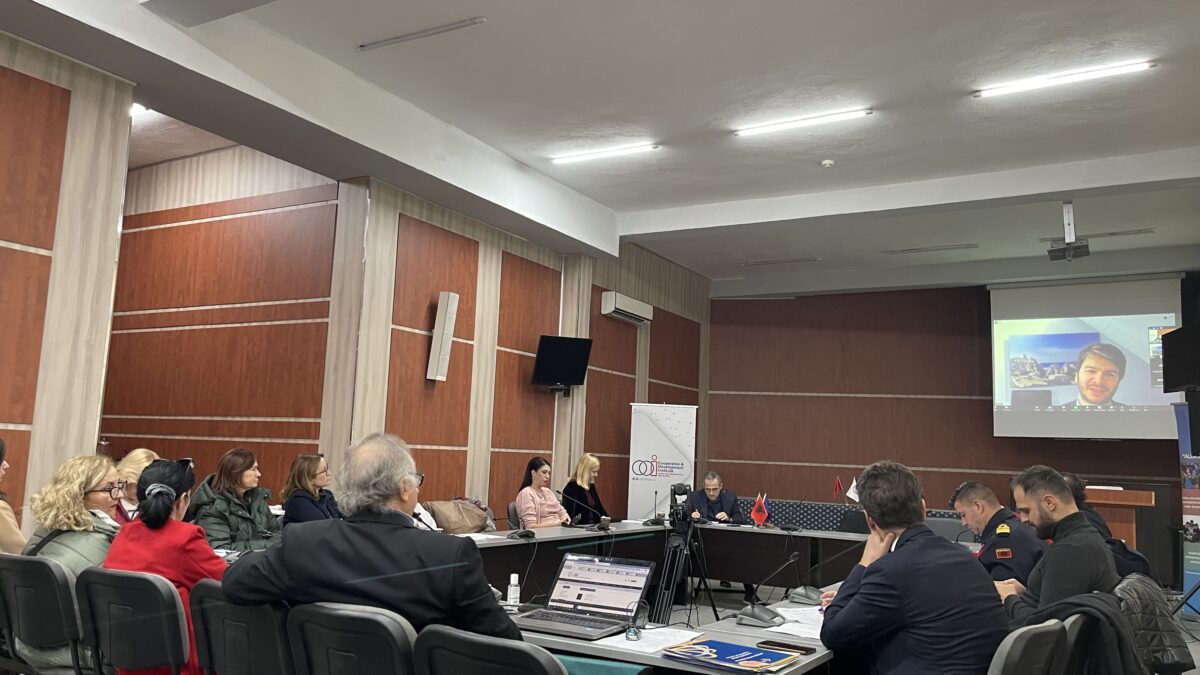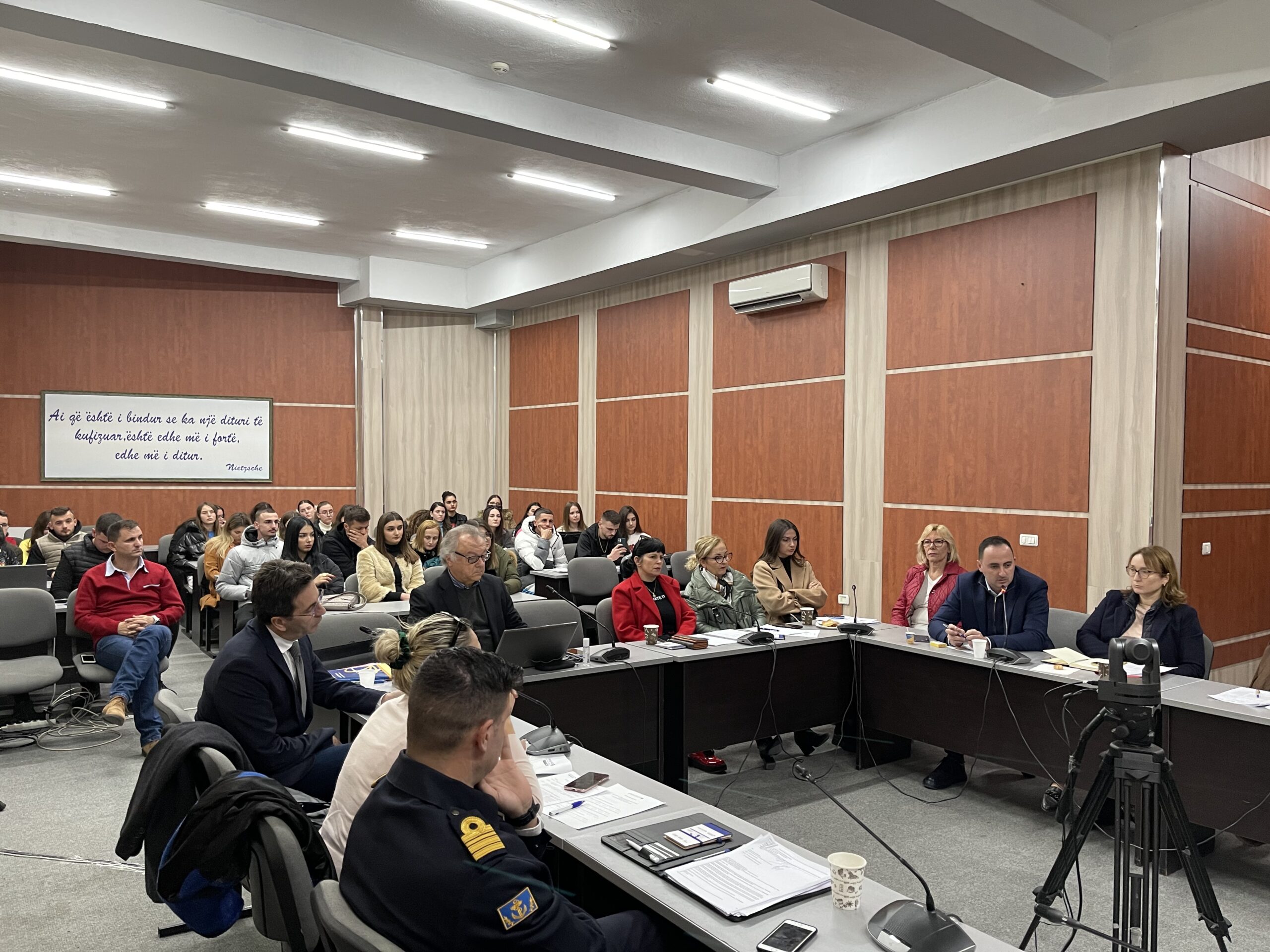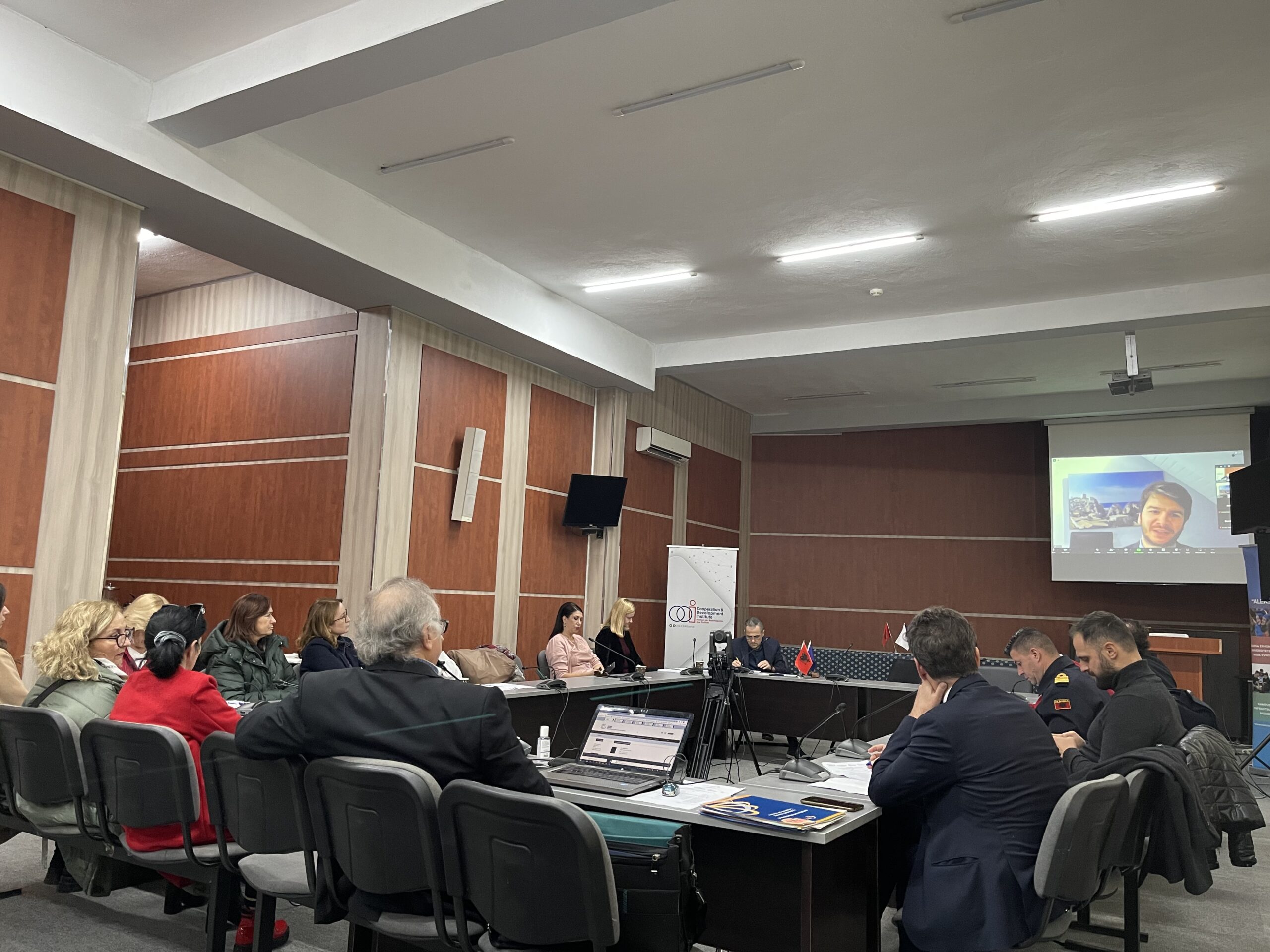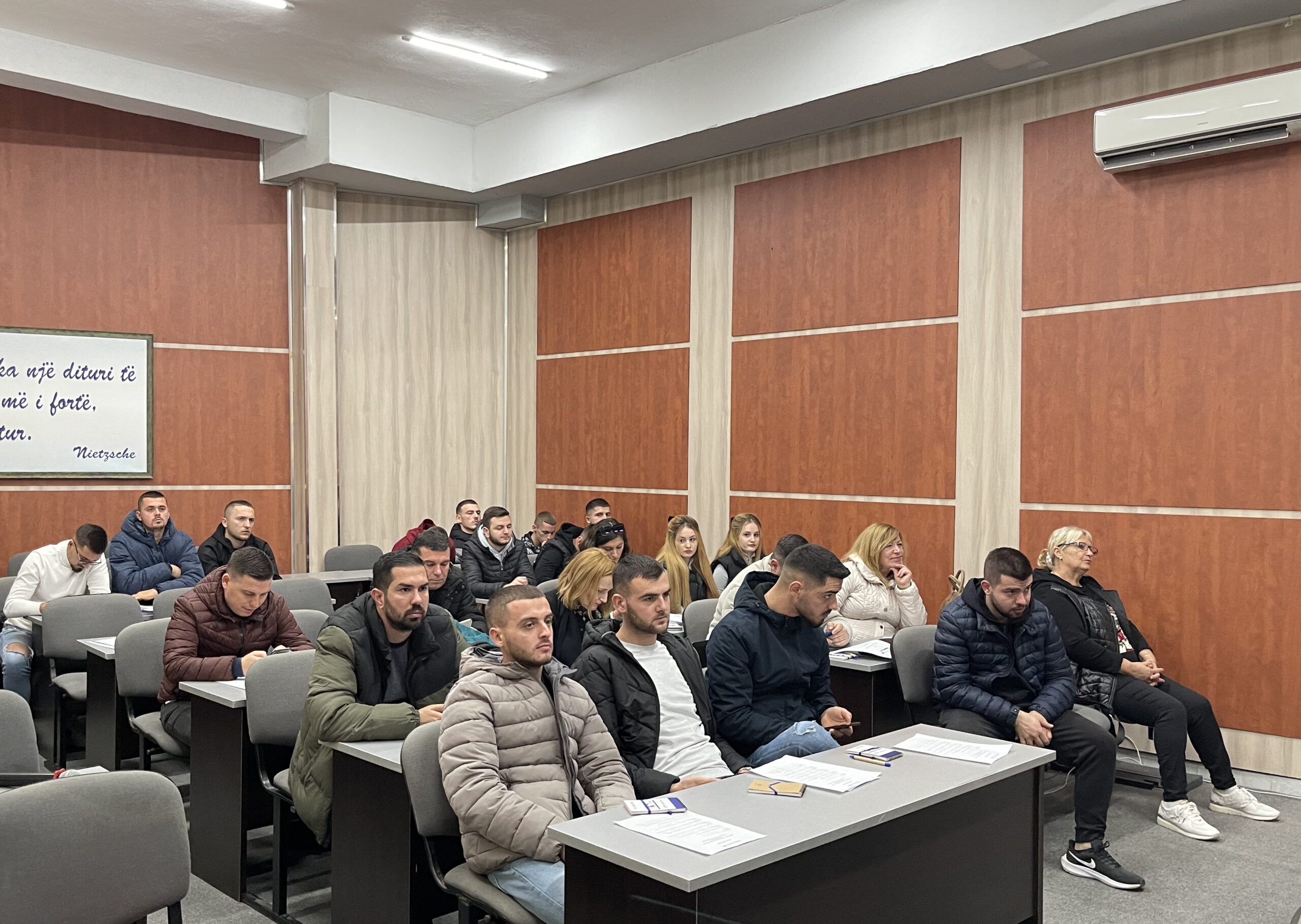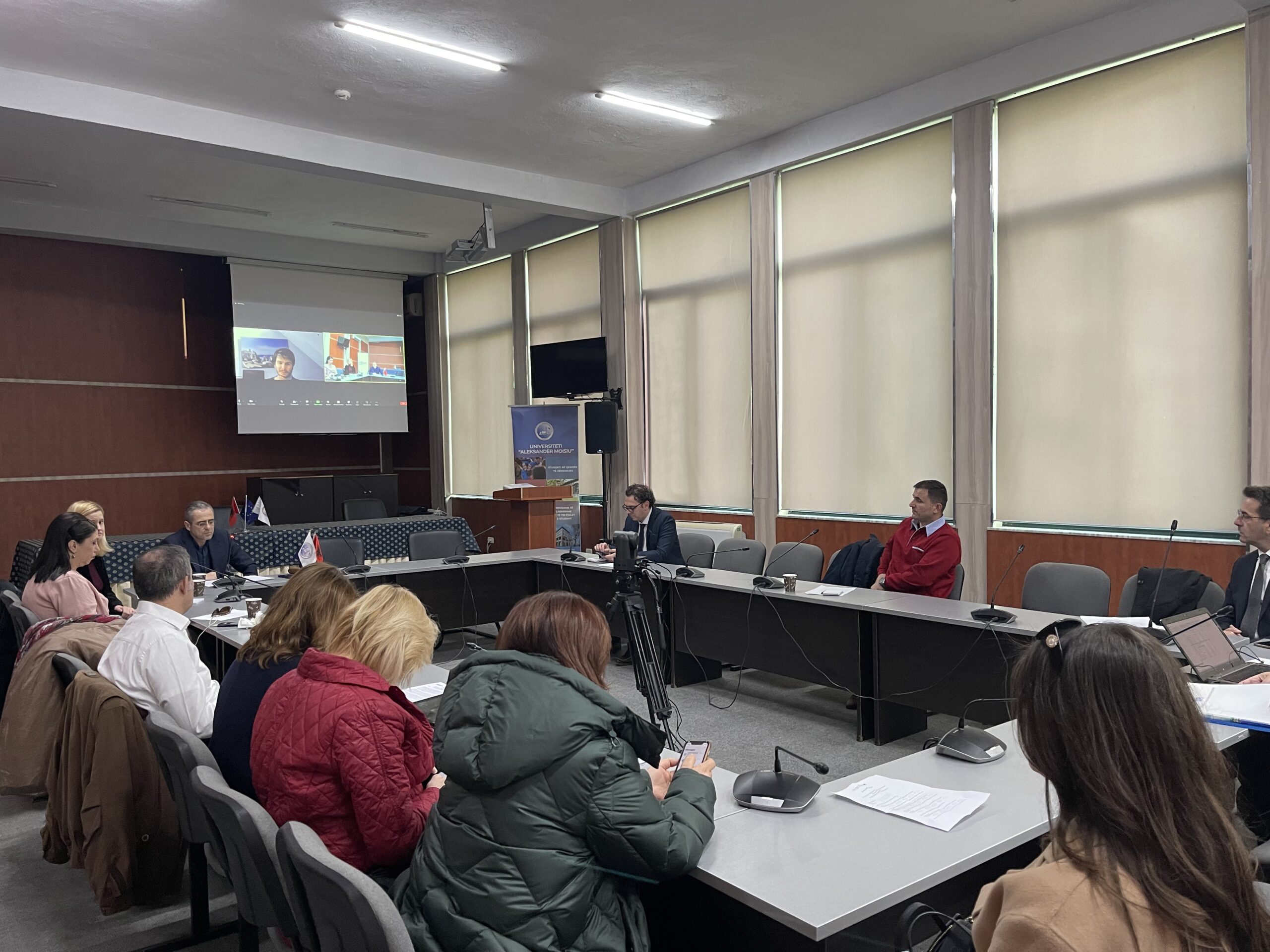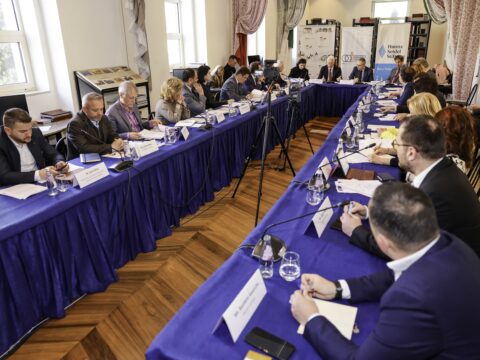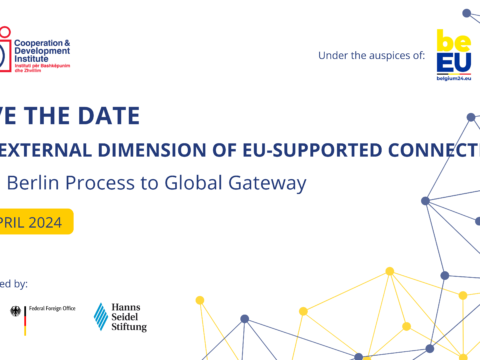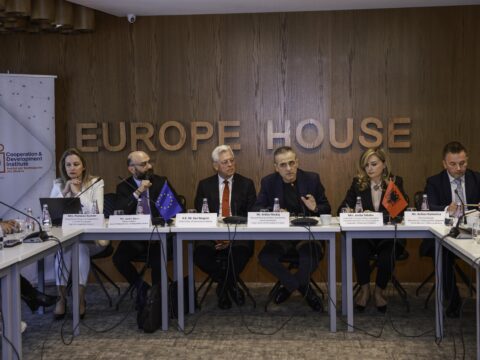In the framework of the SAGOV Plus project, Cooperation and Development Institute organized the Conference on “WB6 European Transport Corridor” on 20 December 2022 at Aleksandër Moisiu University, Durrës.
SAGOV Plus is a 6-months project co-funded by the Interreg-IPA CBC Italy-Albania-Montenegro and implemented by the Cooperation and Development Institute in partnership with the Ministry of Capital Investments of Montenegro and the Special Structure for Territory Cooperation of Puglia Region.
The event focused on Corridor VIII, as the only European Transport Corridor that connects the Adriatic Sea and the Black Sea through Southeast Europe and that passes through NATO countries, with a focus on its rail component.
The keynote speech was delivered by Mr Lucas Bosser, Director of Transport from Conference of Peripheral Maritime Regions (CRPM) on the progress of the draft Regulation for the development of the trans-European transport network, from WB6 ETC. This may be considered best practice on how with the right expertise CSOs can influence the decision-making of the EU, in this case by including Corridor VIII in TEN-T corridors as part of the WB6 European Transport Corridor.
The first panel on “Western Balkans European Transport Corridor in Rail” where the state of play of the main railway sections in Albania, Montenegro that are part of / connected to Corridor VIII was provided. Also, during this panel, Mr Driton Rusi, Assistant Director at Public Enterprise for Railway Infrastructure Railways of the Republic of North Macedonia updated with the state of play of the works of this corridor in North Macedonia, while the representative from the Region of Puglia, Mr Claudio Polignano shared with the participants the importance and support that Italy as a strategic partner gives to Corridor VIII.
As a case study, the participants were informed of the process of implementation of the Tirana-Durres railway extension to Rinas.
The second panel “Increasing Convergence with EU: Institutional, Normative and Good Governance” focused on how the EU programs interact with the national initiatives of the countries of the region and how we can further improve their cooperation for better efficiency and higher impact. In this panel, Mrs Martina Hakl, representative of the Transport Community Permanent Secretariat mentioned the regional initiatives that the secretariat has undertaken for the involvement of civil society in the transport sector, sharing the example of the Social Forum which has been organized for several years now. Whereas, Mr Altin Fuga, representative of the office of the Chief Negotiator, gave an overview of the current situation of the negotiations for Chapters 14 “Transport” and 21 “Trans-European Networks” as well as the next steps in this process.
Furthermore, Ms Petia Manolova, representative of the European Investment Bank in Albania, informed the audience about the new strategy that this International Financial Institution has adopted to support the transport sector, clearly stating that till now and in the upcoming period a large part of the support will go to the railway sector. Mrs Manolova also points out that the European Bank together with the European Commission is currently supporting the process of maturing the dossier of Corridor VIII in Albania.
Consult here:
Powerpoint Presentation: Albanian Railways; Ministry of Infrastructure; European Bank of Investment;



